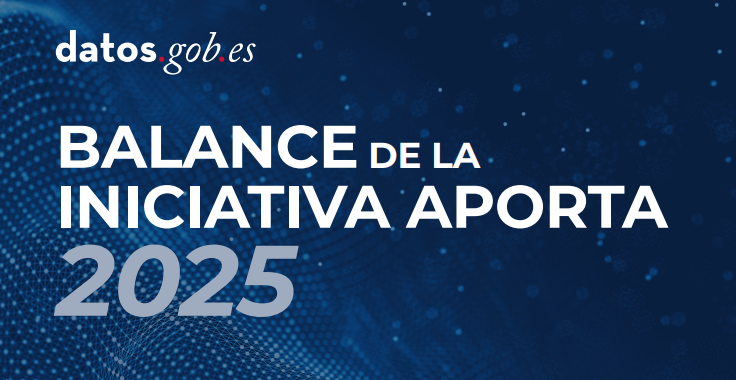858 news found
Artificial intelligence in local entities: keys to the FEMP for a responsible, legal and effective implementation
Public administrations and, specifically, local entities are at a crucial moment of digital transformation. The accelerated development of artificial intelligence (AI) poses both extraordinary opportunities and complex challenges that require structured, ethical, and informed adaptation. In this con…
10 climate-related public data repositories
Environmental sustainability and the fight against climate change are one of the greatest global challenges of our time. Addressing them requires solid evidence and reliable information to understand risks, track progress, guide decision-making, and assess impacts across sectors. As countries design…
What's new in the data ecosystem: second half 2025
In the last six months, the open data ecosystem in Spain has experienced intense activity marked by regulatory and strategic advances, the implementation of new platforms and functionalities in data portals, or the launch of innovative solutions based on public information.
In this article, we revie…
Balance of the Aporta 2025 Initiative
The year 2025 has been a new boost for the Aporta y datos.gob.es Initiative, consolidating its role as a driver of innovation and a benchmark in the open data ecosystem in Spain. Throughout these months we have reinforced our commitment to the opening of public information, expanding resources and i…
Spain continues to be a European benchmark in the openness and reuse of public data
Spain once again stands out in the European open data landscape. The Open Data Maturity 2025 report places our country among the leaders in the opening and reuse of public sector information, consolidating an upward trajectory in digital innovation.
The report, produced annually by the Eu…
Regional Government Forum 2025: the new era of the data economy in the autonomous communities
The recent Meeting Forum between the Government of Spain and the Autonomous Communities has marked a turning point in how public administrations approach digital transformation. For the first time, the debate has not focused on convincing about the importance of data or the need to modernize process…
Discover the winning projects of the open data competitions of Castilla y León and Madrid
The reuse of open data makes it possible to generate innovative solutions that improve people's lives, boost citizen participation and strengthen public transparency. Proof of this are the competitions promoted this year by the Junta de Castilla y León and the Madrid City Council.
Being th…
The Data Union Strategy: Europe's new impetus for the data economy and AI
On 19 November, the European Commission presented the Data Union Strategy, a roadmap that seeks to consolidate a robust, secure and competitive European data ecosystem. This strategy is built around three key pillars: expanding access to quality data for artificial intelligence and i…
The third volume of the Use Case Observatory confirms the impact of open data in Europe
The European open data portal has published the third volume of its Use Case Observatory, a report that compiles the evolution of data reuse projects across Europe. This initiative highlights the progress made in four areas: economic, governmental, social and environmental impact.
The clos…
How the European Union is boosting artificial intelligence: strategies and concrete actions
Did you know that less than two out of ten European companies use artificial intelligence (AI) in their operations? This data, corresponding to 2024, reveals the margin for improvement in the adoption of this technology. To reverse this situation and take advantage of the transformative potenti…









